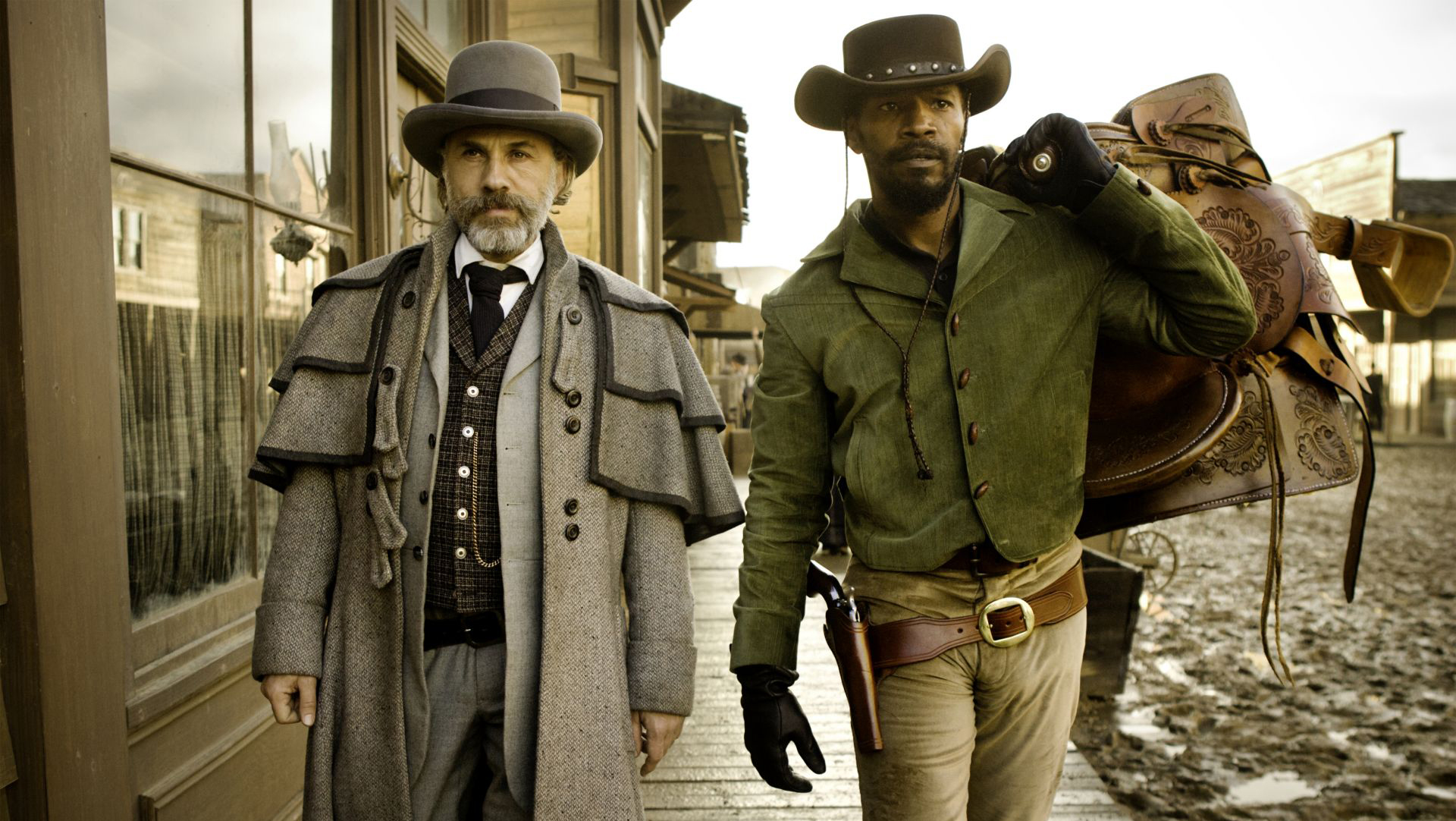Revisionist history is a term that gets thrown around a lot, especially in the media. Quentin Tarantino uses those words as a challenge. Similar to what he did with WWII in Inglorious Basterds, Tarantino rethinks the era of slavery with Django Unchained. Using the motif of a Western, the director craves a revenge fantasy of a slave named Django (Jaime Foxx) turned bounty hunter. The straightforward story allows Tarantino to plunge head on into the part of America’s past we choose to forget.
Django is freed by Dr. King Schulz (Christoph Waltz), a German bounty hunter who parades as a dentist to confuse his prey: ruthless men who have rewards on their head, dead or alive. Schulz is not a fan of slavery, and takes Django under his wing and the two prove to be great partners. They strike a deal where Django will help Schulz identify some “rewards” in exchange for Schulz helping Django find his wife Broomhilda (Kerry Washington). Their search brings them to one of the largest plantations in Mississippi and its caretaker, Calvin Candie (Leonardo DiCaprio).
Django Unchained is brutal but realistic in its depiction of the depths of slavery. The Invisible Man comes to mind in some of the most visceral scenes. The N word is commonplace (which ironically takes away some of its power); and African-American inferiority is scientifically “proven” in one scene. The best choice Tarantino makes is that these reprehensible people are not divided by race, but more so by power and fear of the unknown. Now, since most people in power are white at the time of Django, most of the white race is shown in all its horrific display; however, the top of the power chain each have friendships of the opposite race. Calvin Candie has an African-American informant (Samuel L. Jackson) and Dr. Schulz has Django. These interracial relationships keep Django Unchained from becoming too preachy.
The story of Django Unchained is more straightforward than some of his earlier efforts, though it is not without its fun elements. The first half is a Western type story of the wily vet (Dr. Schulz) and the upstart (Django). There is a showdown, a tavern, a tense dinner, and a campfire confession, all done very uniquely by Tarantino. The second half is a tense war of wits between Candie and the pair in their rescue of Broomhilda. The dialogue is fun, but Django drags the most during this part of the story. Tarantino’s best success involves how he chooses to end the story, building to an inevitable climax that involves the protegé learning from his master to get to where he is destined to be.
The acting is solid across the board. Jaime Foxx gives Django a no-nonsense drive and determination with a deceptive wit. His best work is when he has to balance his anger with Candie while playing nice at the same time to make the sale of Broomhilda legal. Christoph Waltz proved he can play this role in Basterds, and is very charismatic and smart for the good guys this time. Leo DiCaprio is usually the good guy, but there’s not a lot to like here; his role in a lesser actor’s hand would be one note, but DiCaprio gives Candie some nuance. Sam Jackson gets some juicy stuff as Candie’s confidant; I found myself more frightened of Jackson than DiCaprio. Other familiar character actors and stars show up. Tarantino gives himself another memorable moment in a movie, but Don Johnson and Jonah Hill get the best cameos during a meeting of the klan.
Django Unchained is another solid addition to Quentin Tarantino’s resume as an ambitious filmmaker who is willing to take on any controversial project. He managed to take on darker aspects of America’s past and come out relatively unscathed. I hope he has similar panache as he chooses in the future; in the meantime, it is almost certain for me that a Tarantino movie will fall on my year-end must-see list, and Django Unchained is no exception. It is not for the faint of heart, but it is extremely entertaining and a strong reminder of the horrors of racial injustice.

